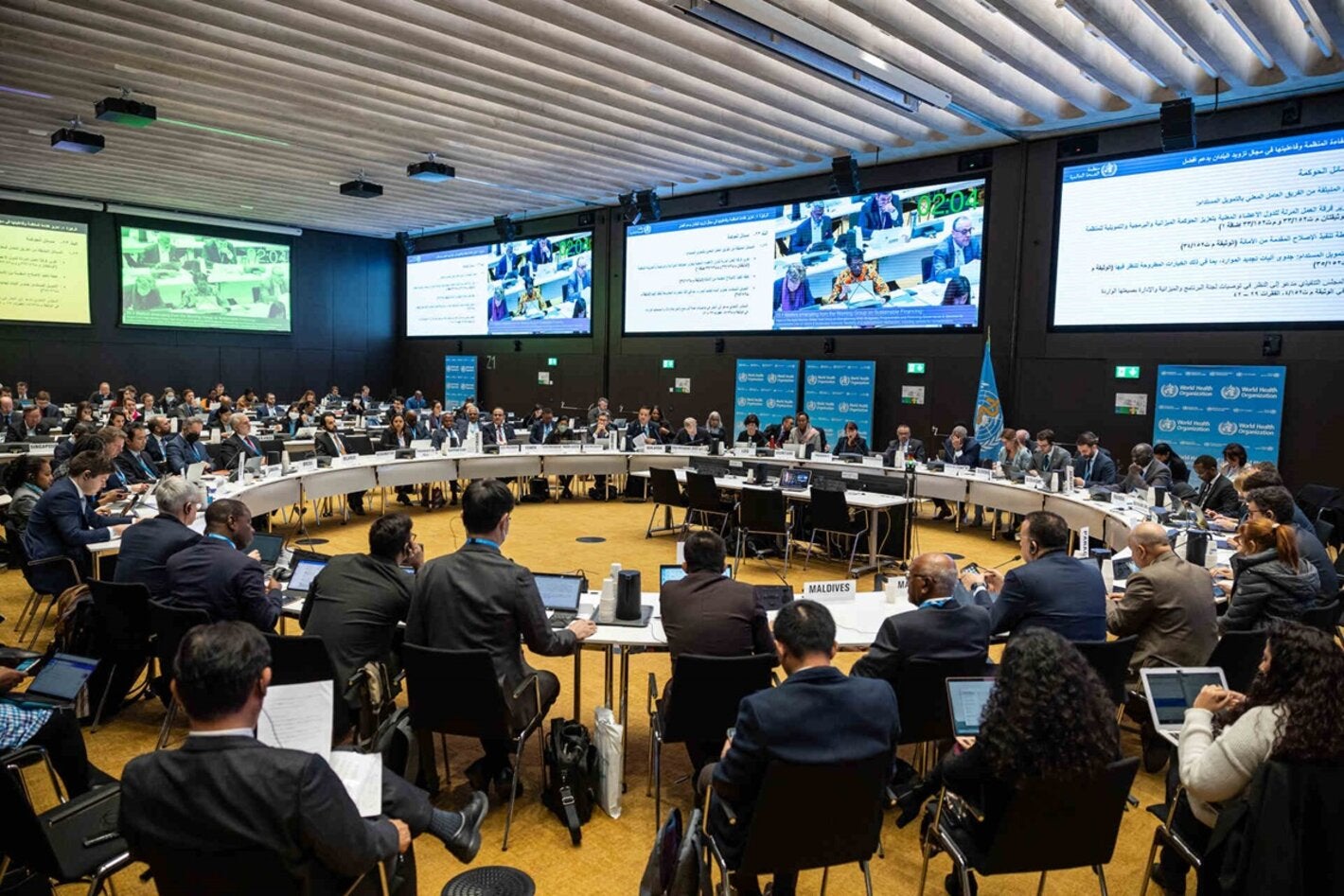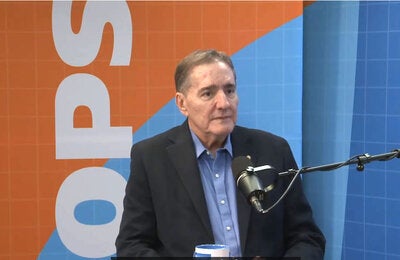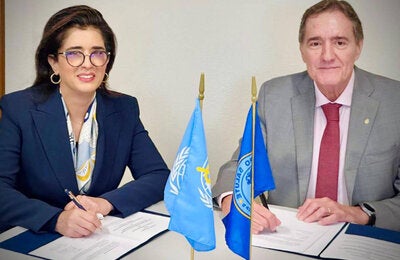
Geneva, Switzerland, 22 January 2024 (PAHO) – The 154th Session of the World Health Organization (WHO) Executive Board kicked off today in Geneva, Switzerland. During the week, members of the Board will discuss over 40 health topics, including WHO’s 14th General Programme of Work (GPW14); health emergency prevention, preparedness and response; accelerating national and global responses to antimicrobial resistance (AMR); and the impact of climate change on health, among other priority issues.
During his opening remarks, WHO Director-General Dr. Tedros Adhanom Ghebreyesus highlighted the Organization’s achievements in 2023, including the end of COVID-19 and mpox as global health emergencies. He also underscored the challenges over the past year, such as preventable disease and death, and an increase in conflict and disasters.
Dr. Tedros also stated that “2024 will be a defining year for global health,” with opportunities for Member States “to shape the world’s global health strategy for the next four years in the GPW14” and “to shape the future of health emergencies, through the pandemic agreement and amendments to the International Health Regulations (IHR).”
On the first day of the Executive Board, an informal briefing was held on the processes related to the Intergovernmental Negotiating Body (INB) to draft and negotiate a WHO convention, agreement or other international instrument on pandemic prevention, preparedness and response and the Working Group on Amendments to the International Health Regulations (WHIHR). This briefing provided Executive Board members with an update on this work, as well as an opportunity for questions and answers.
During the week, the Director of the Pan American Health Organization (PAHO) and WHO Regional Director for the Americas, Dr. Jarbas Barbosa, will participate in sessions on a number of priority topics for the region, including climate change and health, and antimicrobial resistance.
Dr. Barbosa will also present the report of the WHO Regional Committee for the Americas, which was held from 25-29 September in Washington D.C.
Policies approved during the Committee included one to strengthen health personnel; a policy on the prevention and control of non-communicable diseases among children, adolescents, and young people; and a policy to improve mental health, among others.
The Executive Board will take place from 22-27 January at the WHO Headquarters in Geneva, Switzerland. Sessions can be followed live here.
The WHO Executive Board is composed of 34 technically qualified members elected for three-year terms. The main functions of the Board are to implement the decisions and policies of the Health Assembly, and to advise and facilitate its work. The current Board comprises six Member States from the Americas: Barbados, Brazil, Canada, Paraguay, Peru and the United States.



